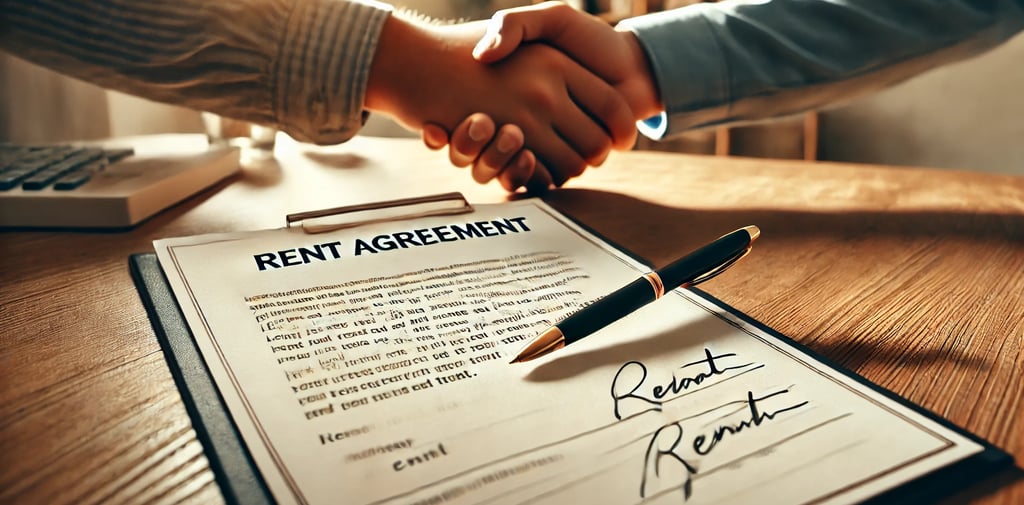What is a Rent Agreement? A Simple Guide for Tenants and Landlords
Confused about rent agreements? Learn what they are, why they matter, and key clauses to protect tenants and landlords in plain language.
2/28/20252 min read


A rent agreement (or rental agreement) is a legal contract between a landlord and a tenant. It outlines the rules, responsibilities, and terms for renting a property. Think of it as a rulebook that protects both parties and prevents misunderstandings.
Key Details in a Rent Agreement
A good rent agreement should include:
Names and addresses of the landlord and tenant.
Property details: Address, type (apartment, house, etc.), and amenities.
Rent amount and due date: How much, when to pay, and acceptable payment methods.
Security deposit: Amount, conditions for refund, and deductions (e.g., repairs).
Duration: Is it a fixed-term lease (e.g., 1 year) or month-to-month?
Maintenance rules: Who fixes leaks, pays for repairs, or handles garbage?
Restrictions: Pets, subletting, or modifications to the property.
Rent Agreement vs. Lease Agreement: What’s the Difference?
Rent Agreement: Often short-term (month-to-month), with flexible terms.
Lease Agreement: Usually long-term (6 months to 1+ years), with fixed conditions.
Both are legally binding, but leases lock in terms for longer periods.
Why is a Rent Agreement Important?
For Tenants:
Guarantees your right to live in the property for the agreed period.
Prevents sudden rent hikes or unfair eviction.
Clarifies who handles repairs or emergencies.
For Landlords:
Ensures timely rent payments.
Legally enforces rules (e.g., no unauthorized pets).
Provides proof in case of disputes.
How to Create a Rent Agreement
Discuss terms: Agree on rent, deposit, and rules with the landlord/tenant.
Write it down: Use a template or hire a lawyer for drafting.
Include local laws: Some states require rent agreements to be stamped/registered.
Sign and share: Both parties should keep a signed copy.
⚠️ Pro Tip: Always read every clause before signing! Never agree to vague terms like “miscellaneous charges.”
Common Mistakes to Avoid
Verbal agreements: Always get it in writing—verbal deals are hard to enforce.
Skipping the fine print: Hidden clauses about penalties or automatic renewals can backfire.
Ignoring registration: In some countries (like India), unregistered agreements aren’t valid in court.
Can a Rent Agreement Be Changed?
Yes, but only if both parties agree. Changes must be added as an amendment and signed by everyone. A landlord can’t raise the rent mid-term unless the agreement allows it.
Final Thoughts
A rent agreement isn’t just paperwork—it’s your safety net. Whether you’re a tenant or landlord, a clear, fair contract ensures a smooth renting experience. Always keep a copy, understand your rights, and seek legal help if disputes arise.
FAQs
Q: Is a rent agreement mandatory?
A: Not always, but it’s highly recommended to avoid legal or financial conflicts.
Q: What if the landlord refuses to return my security deposit?
A: The agreement should specify deposit rules. If they violate terms, you can take legal action.
Q: Can I break a rent agreement early?
A: Yes, but you may lose your deposit or pay a penalty unless the landlord agrees.
Housing India
Your source for housing insights in India.
© 2025. All rights reserved.
